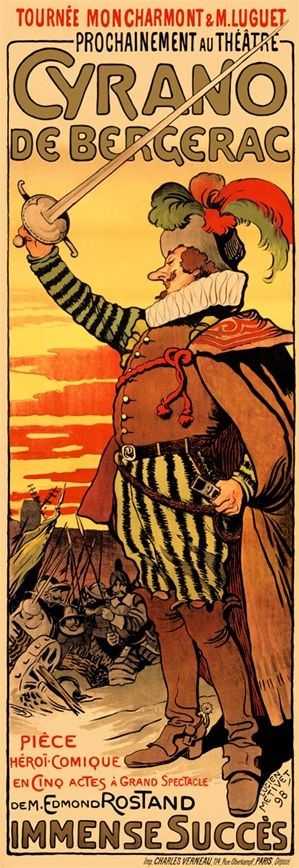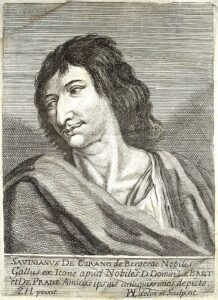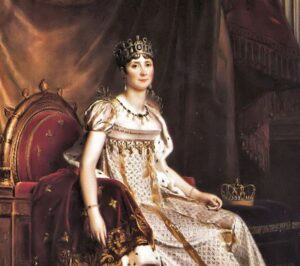If you’re a fan of movies, you’ll know that the December-January window is when many studios release films they’d like to compete for awards like the Golden Globes or Oscars. My brother and I were scanning through the list of upcoming movies to see if there was anything we wanted to watch before the awards buzz started. We ran across a movie called Cyrano that caught our attention. Not only was the main character played by Peter Dinklage (Tyrion in Game of Thrones), but something about the name also seemed familiar. After looking it up, we found that Cyrano is a film adaptation of Cyrano de Bergerac, a French play by Edmond Rostrand first performed in 1897.
Some of you may have seen the play or read it for school, but I hadn’t. After a quick Wikipedia search and with the movie coming out soon, I was convinced it was worth a read. Apparently, the play was extremely popular in its day and has appeared on Broadway throughout the 1900s, with its most recent Broadway run ending in 2007. After its first showing, the audience applauded for an entire hour.

Without spoiling anything, the play is very loosely based on the life of a French nobleman and soldier in the 1600s named Cyrano de Bergerac. In the play, Cyrano excels at all things required of a man in his time—bravery, swordplay, poetry—but is hampered by his one flaw: he has a laughably large nose. Discouraged by his nose, Cyrano refuses to pursue his lifelong love, Roxanne, and instead helps a more attractive, but hopelessly unromantic man court her.

I quite liked the play—Cyrano is not what we might call a “simp” in today’s terms, but is more of a romantic, Don Quixote-type character. It gives an interesting window into how a Western audience at the turn of the 20th century might have thought about heroism. And the play’s themes still inspire romantic comedies today (e.g., the Netflix films Love Hard, or Set it Up, which even references the connection in the film). If you’re interested in reading Cyrano de Bergerac, there’s a free English translation for Amazon Kindle that was used for the 1920s Broadway adaptation. It contains a passionate foreword by the play’s producer that is also worth reading. Reading the play also made me think about the film and the seemingly perfect choice of Peter Dinklage as Cyrano. I wondered if Peter, as a talented actor and little person, may have felt a personal connection with the character. After some investigation, the connection goes beyond that. The film is based on a theatrical adaptation of the play by Peter’s wife, Erica Schmidt. When Erica wrote the play, Peter asked her to cast him as Cyrano. The play then caught the interest of director Joe Wright (Pride & Prejudice, Anna Karenina), who asked Erica to write the screenplay.
Peter Dinklage Discussing Cyrano
Although I was excited to see the film after reading the play, I’m even more excited to learn about the meaningful connection both the writer and the main actor have with the film’s main themes. It is almost as if the film is one couple’s passion project based on their own lived experience. And it will be interesting to see how that deep connection manifests itself on screen. The film is currently nominated for Best Picture and Best Actor (Peter Dinklage) for the Golden Globes. It is currently set to release to all audiences on January 28th, 2022. Let’s hope it’s a good one!



